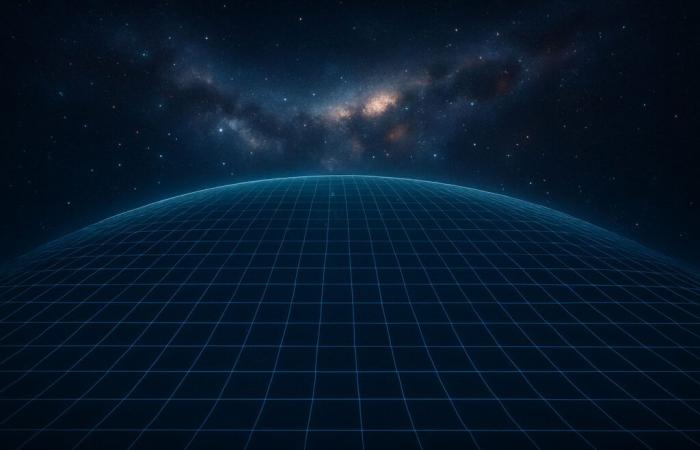What if we were living in a simulation? That question sounds like science fiction, but physicist Melvin Vopopson, from the University of Portsmouth, believes having found an interesting clue.
According to his new study, published in AIP Advancesgravity could be the product of computational processes that the universe uses to stay organized.
Vopson says that, just as a computer seeks to save space and be efficient, the universe could be doing the same.
Instead of seeing gravity only as a force that pulls us, he proposes that it is a form of the universe of ordering information and matter.
This does not change our daily lives, but trying to understand if we live in a simulation gives us another way of studying how reality works.
Vopson has been exploring this idea for several years. In 2022, together with the mathematician Serban Lepadatu, he proposed the “second Law of Infodynamics.”
This law is based on the second law of thermodynamics, which says everything tends to disorder. But in this case, the “information entropy” should be maintained or even decrease.
In addition, Vopson has investigated whether information has a mass, as if it were another state of matter.
And if the smallest particles in the universe are like digital bits, then they could be data storage units.
He states that these particles are organized in “pixels” of space-time, as if they were cells that contain or do not contain matter, in the style of a 1 or 0.
According to their study, when many particles fall into the same pixel, they tend to join, and there appears gravity as a side effect of that compression.
In simple words, it is easier for the “system” of the universe to follow a single object than several, so you “compress” together.
That makes gravity work as a kind of optimization tool to reduce the computer effort of the universe.
In this analogy, each pixel would be like a ZIP file, and the gravity, the software that compresses it to save space.
It makes sense if we think that, despite the fact that gravity is everywhere, we still don’t know what it is or why it exists.
Therefore, looking at it from another approach – as if it were part of a computational system – could help us understand it better.
Vopson acknowledges that we still do not know if we live in a simulation, but believes that gravity gives us clues that information is key in physical reality.
He says that future research should prove this theoretical framework in quantum and relativistic contexts, and try to validate it experimentally.
So, although we still cannot say if we are characters in a “cosmic video game”, this theory opens new ways of thinking about the universe.






